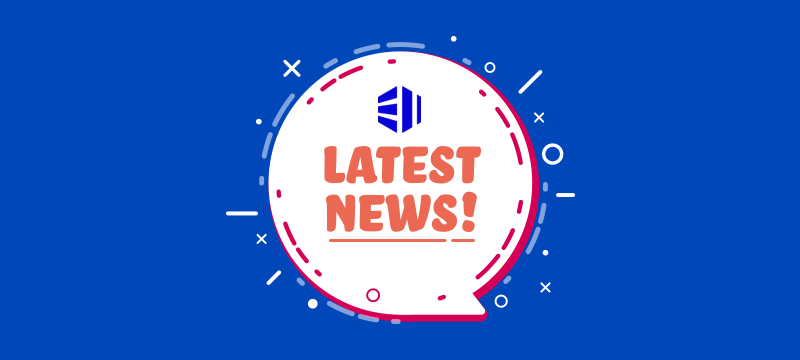Welcome to our latest round-up of news from the technology and hosting world. Here’s what we’ve discovered this month.
DWP Adopts AI
The UK’s Department of Work and Pensions (DWP) is to expand its use of advanced AI tools to combat benefit fraud. Following an increase in fraud cases during the pandemic, it has already implemented a machine-learning-enhanced algorithm which analyses historical benefits data to identify potentially fraudulent or incorrect claims for Universal Credit.
Now the system has been embedded, the DWP plans to pilot similar models in areas with high rates of overpayment. This will focus on undeclared self-employment earnings and incorrect housing costs.
While this tech-driven approach has improved the department’s ability to identify suspicious claims and combat fraud, the DWP does recognise the need to monitor and refine its algorithms to reduce any unintended biases which may lead to people being wrongly investigated – something which has raised concerns amongst campaigners.
Engine Firm Has UK HQ
Renault and Chinese carmaker Geely have announced plans to establish a new engine-making company that will be headquartered in the UK. The company will have an investment of around £6 billion to develop low-emission petrol, diesel and hybrid engines and will employ around 19,000 workers across 17 factories as well as in research and development hubs.
Although the automotive industry, globally, is shifting towards electric vehicles, Renault and Geely believe that there is still potential in advancing ultra-low-emission internal combustion engine technologies, given the difference in cost between electric and traditional cars. The new company, which is set to launch later this year, will supply engines to manufacturers such as Volvo, Nissan and Mitsubishi.
A potential investor in the new company is Saudi energy giant Aramco, the world’s largest oil and gas company. Although a significant emitter of greenhouse gases, it aims to contribute to climate change mitigation by supporting low-emission technologies.
App Wars
While the cage fight Elon Musk offered Mark Zuckerberg is unlikely to ever happen, the two entrepreneurs are slugging it out in the social media app wars after Zuckerberg’s Meta released Threads, a rival to Musk’s Twitter.
It took Threads just five days to surpass 100 million users, a new record for social media sign-ups, though this is still some way behind the 350 million who use Twitter. However, the figure is likely to rise given that it is available on Apple and Android app stores in 100 countries, including the UK, and has an association with Meta’s Instagram which has a staggering 1 billion users. Another factor helping its progress is the discontent among Twitter users following Elon Musk’s take-over and the subsequent operational changes. It has not all been plain sailing, however; Threads has struggled in Europe as there are still concerns about its compliance with EU data privacy laws. Who will come out on top? Given the tenacity of the two protagonists, this battle looks likely to go the distance.
Bee-I Boosts AI
Bee-I or bee intelligence is being used to help improve artificial intelligence systems. Boffins at the University of Sheffield’s Department of Computer Science have been studying how honeybees, despite having brains the size of a sesame seed, can make ultra-quick decisions. The researchers trained a group of bees to recognise different coloured flowers, with each colour indicating the presence or absence of food. Once let loose in a garden, the bees swiftly headed towards the flowers they believed contained food and avoided those they deemed empty.
Uncovering the mechanisms behind the bees’ quick decision-making capabilities has significant implications for refining AI-powered products, allowing developers to apply these findings and create more advanced and adaptable technologies. The scientists at Sheffield hope the research will help them design more efficient and risk-averse robots and autonomous machines.
KMPG Cloud Move
Multinational accounting and professional services firm, KPMG, is to increase its use of cloud technology and AI as part of its plans to expand, modernise and increase productivity. The move will enable KPMG to deploy advanced tools that will enhance business units such as tax, audit and advisory groups.
By accessing its cloud-based AI and data analytics services, KPMG’s clients can benefit from improved services and capabilities. In particular, KMPG wants to integrate cognitive AI into its auditing platform to enhance AI-led data analytics and give KPMG’s thousands of auditors more time to devote to high-risk areas and industry-specific challenges.
The move will also see KPMG’s Digital Gateway incorporate its entire legal and tax suite. This will provide employees with greater visibility and management of tax processes. The firm is also exploring the use of AI in producing ESG tax transparency reports, leveraging the analysis of ESG data and patterns.
Visit our website for more news, blog posts, knowledge base articles and information on our wide range of hosting services.



